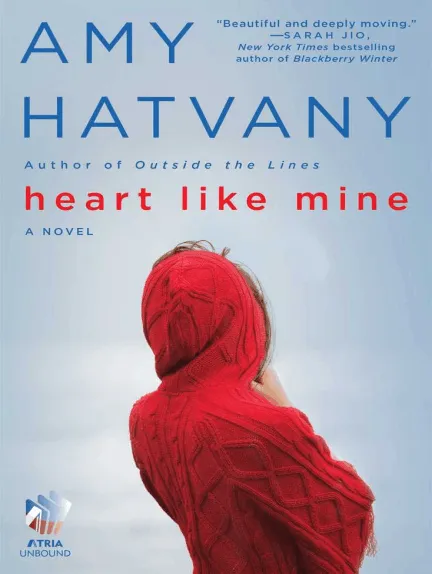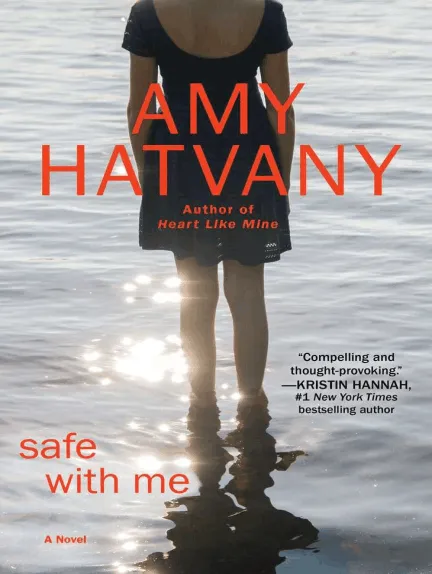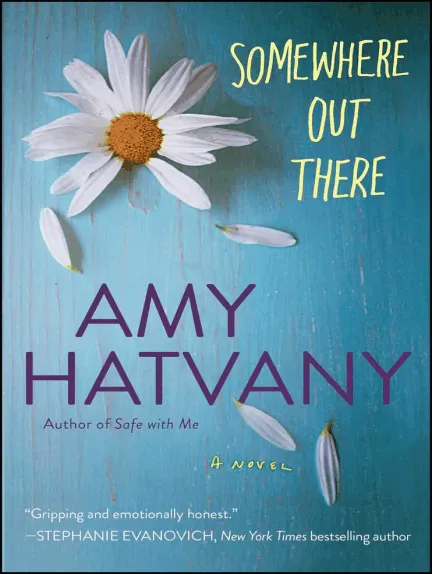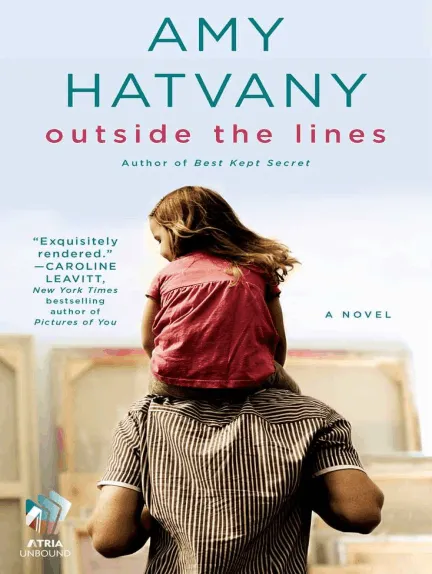If I’d had a choice in the matter, I wouldn’t have gone to work after Tom punched me. The last thing I felt like doing was showing up for my shift, but sitting around in my apartment, staring at the walls while I replayed the events at the party over and over again in my head, wouldn’t do me any good. I told myself that the distraction of work would help, that keeping busy was the best thing for me.
And so, after having rested on my mother’s couch for a few hours with an ice pack on my face, I showed up at the station house with a burgeoning black-and-blue right eye. “Whoa,” Captain Duncan said when I walked into the locker room. “I’d hate to see the other guy.”
“Got into a brawl with a weight machine at the gym,” I lied, forcing a smile. “It sprang loose and knocked me in the face.”
My captain nodded, and looked as though he believed me. I couldn’t imagine telling him what really happened. Mason, however, was a different story. I knew there was no way I could keep the truth from him—that after Tom had hit me, I’d lain on the grass for less than a minute, only briefly unconscious, dazed by my skull bouncing on the hard ground when I fell backward off the steps. I came to quickly, only to find my mother kneeling next to me, threatening to call the police.
“No, Mom. Don’t,” I said, feeling a bit dizzy as I sat up. My eye ached, and I touched it carefully, feeling around the socket to make sure I wasn’t bleeding and that no bones had shattered. It hurt, but everything seemed intact. Tom just punched me. I couldn’t believe it. Even my own father, with all his flaws, had never been physically violent with me.
“He just assaulted you!” my mom said, helping me get to my feet. She shot both Tom and Helen a furious look, which they met with their own.
“Mom,” I said, grabbing her hand. “Stop. Let’s just go.” Having the police there would only have made the situation worse. They’d demand to know what incited Tom to hit me, and I couldn’t handle the idea of being accused of rape, put in handcuffs, and driven off in the back of a squad car. I couldn’t believe any of this was happening, at all.
“Don’t come back here again,” Tom said, cradling his right hand to his broad chest. “Either of you. You’re not welcome.” He was breathing hard, and winced when he tried to straighten his fingers. He might have broken them; from the redness of his skin, I could already see that his knuckles would bruise. My first instinct was to offer to take a look, but I knew he wouldn’t let me.
I glanced up to the second story and saw the white, gauzy curtain in Amber’s room shift. Her window was open, so I suspected she’d been listening in. She was probably happy her father had hit me. It took everything in me not to shove my way inside the house, run up the stairs, and beg her to talk to me.
“You should be ashamed of yourself,” Helen said, tearfully. Her arms were crossed tightly over her chest, her hands running up and down her biceps. “What kind of monster are you?”
“It’s Amber who should be ashamed,” my mom said. “Do you know what a false accusation like this could do to my son?”
“Mom!” I said, yanking her arm as I took a step toward the street. “Enough. This was a bad idea.” I could feel the blood pounding around my eye, the skin starting to stretch as it swelled. I knew I’d need to get ice on it as soon as I could. I’d gone there to find out what Amber’s state of mind was—what she had told her parents—and now I knew. She was claiming that I’d raped her. At that point, no matter how much I wanted to prove her wrong—to fix things—there was nothing more I could do.
Now, after talking with my captain, I threw my bag into my locker, and then made my way into the garage, where I found Mason already double-checking the inventory on our rig. “Hey,” I said, climbing into the back of the ambulance to join him.
He looked up, and his eyes went wide when he saw my face. But before he could say anything, I told him what had happened, keeping my voice low so no one else might hear. He listened, staying silent for what seemed a long moment after I was done.
“This is one fucked-up situation,” he finally said.
“Yeah, it is.” I didn’t know what else to say. That single sentence pretty much summed things up.
“What’re you gonna do?”
I shrugged. “I don’t know if there’s anything I can do. She won’t talk to me.”
“I don’t think you should worry about that,” he said. He sat back against the stainless-steel cabinets that lined the back of the rig and stared at me. “What should worry you is who she is going to talk to. Like the police.”
I nodded, unable to speak, for fear I might lose my shit right then and there. An intense pressure expanded inside my chest—the kind of pressure I couldn’t outrun. But I couldn’t let what had happened the night of the tanker truck accident happen again. I couldn’t let my partner see how messed up I really was.
“Maybe you should call a lawyer,” Mason said, and even though we were friends, I felt like he was judging me, that it was possible he thought Amber’s version of what happened was true.
“I’ll think about it,” I said, not wanting to discuss the issue further. I’d come to work in order to work, not sort out my personal life. “Thanks.”
He bobbed his head, and we managed to make it through our shift without bringing the subject up again. We made it through the next few weeks, actually, during which time I didn’t hear from Amber or her parents, and no police showed up to cart me off to jail. I told myself that maybe she’d backtracked. Maybe she’d realized that she’d contributed to what happened between us just as much as I had. But every time I had this thought, a loud voice clanged inside my head: She told you to stop. You had sex with her anyway. And then I felt ill, anxiety oozing through me, melting away any rationalizations in its path. It felt like a virus infecting my body’s defense systems, a plague intent on taking me down.
I did what I could to fight it. As July progressed, I stuck to a strict schedule—I worked at night and slept at least eight hours during the day. I went for a five-mile run before each shift, trying to drain the constant tension that gripped me. I didn’t speak with my father, and he made no effort to reach out to me. Even though it was clear that he hadn’t talked to my captain about what happened the night of the tanker truck accident, I couldn’t forgive him for threatening that he would. The things he’d said about me and Amber that afternoon in my apartment were still on repeat in my head. I kept my conversations with my mom as brief as possible, but she often called me, crying about the loss of her friendship with Helen.
“She won’t even look at me if we both happen to be in our front yards,” she told me. “She’s acting like I don’t exist.”
I had to repress a sigh every time she complained, knowing that it was just her nature to elevate her suffering above everyone else’s. She’d never admit it, but she was like my father that way. I’d often thought it was one of the deeper reasons their marriage didn’t work.
“Have you seen Amber at all?” I asked my mother toward the end of the month. I wanted to know how she was doing, if she and Daniel were still engaged. I wanted to know if she would ever find it in her heart to talk to me again. I felt her absence in my life like a gaping wound. I hated not knowing if she was okay, hated thinking that I might have hurt her.
“A few times,” my mom said. “She looks so different with her hair short.” She paused. “It looks like she’s lost weight.”
When Amber was upset, she restricted her food. She had stopped eating entirely at the end of her freshman year in high school, which was what ultimately led to her heart attack and hospitalization seven months later. I remembered sitting with her at the Bryants’ dinner table, wanting to grab a spoon, force bites of buttery mashed potatoes between her lips, and then cover her mouth with my hand until she swallowed. At the time, I didn’t understand why she wouldn’t eat. I didn’t understand that anorexia wasn’t so much a matter of food as it was a desperate need to feel in control.
Now, I thought about texting or calling Amber daily. I felt sure if we could just talk, we’d find a way to resolve things and we could go back to how we used to be. Despite Mason’s suggestion, I didn’t talk with a lawyer, worried that, if I did, I might hear something about my circumstances that would ramp up my anxiety levels higher than they already were. There were times when my heart would race and I’d check my blood pressure in the back of the rig, shocked at the elevated numbers I saw. If it were anyone else, any one of the victims I helped treat in the field, I would tell them they needed immediate medical help—that sustaining a systolic pressure over 130 and a diastolic of 100 would eventually do irreparable damage to their heart.
This was the thought inside my head one sunny afternoon in August when Mason and I pulled up to the curb of a building where a teenage girl apparently had swallowed an unknown amount of her mother’s narcotics. I’d gone for my daily before-shift run, but still, I couldn’t ignore the ache in my chest or the way my pulse stuttered every time I took a breath. I’d promised Mason I’d get a handle on it, but the more I tried to do just that, the deeper it seemed to dig its sharp talons into my brain, more determined than ever to stay.
“Hey,” I said, as we bounded up the stairs to the third floor. “Want to grab a beer tomorrow? Or lunch?” In the past, it wouldn’t be uncommon for Mason and me to hang out together on our day off. But since the incident with Amber, my relationship with my partner had shifted. We still got our jobs done, but that was all. He no longer invited me over for dinner with Gia and the baby, we didn’t shoot the shit about other coworkers or our boss—all we talked about was work. I missed the easy camaraderie we’d always shared, and part of me regretted telling him anything about what had happened at the party. Outside of Amber, I didn’t have many close friends, so I was anxious to find a way to reconnect with Mason. I couldn’t lose them both.
“Can’t,” he said, not looking back at me as we approached the apartment door. “Sorry.” He didn’t give an explanation—he didn’t have to. A hot rush of shame washed over me. I knew that Mason, a man I looked up to and respected, believed that what Amber accused me of might be true.
“Any bets on whether the mother has a prescription for the meds?” Mason asked, changing the subject.
“I’d rather not think about it,” I said. Too many times we’d encountered parents who left medications—legitimately prescribed or not—in the easy reach of a child. And too many times this ended in a deadly overdose.
Ignoring the curious stares of the neighbors who peeked out of their doors and windows in response to the siren, Mason pounded on the door of the address we’d been given, and a woman opened it, standing before us clad only in a white T-shirt that barely reached the middle of her thighs. Her skinny body and pockmarked face fit the physical characteristics of someone who abused drugs, and in my experience, if people looked like addicts, that’s what they were.
What do rapists look like? I suddenly found myself thinking, struck by the memory of being inside Amber, the way her naked skin felt against mine still vivid enough that it could have happened just hours ago. I heard my father’s voice: I think you’d do just about anything to get into your sweet little Amber’s panties. Had he been right? Had I been willing to do anything in order to have her—including forcing myself on her after she told me to stop? A horrified shiver shot across my skin, and I began to shake. If someone looked at me, is a rapist what they’d see?
“Please, hurry!” the woman said, snapping me back to the present. She urged us inside her apartment. “You have to help her!”
“Where is she?” I asked. My eyes darted around the small living room, looking for the woman’s daughter, hoping we’d made it in time to save her. The air was stale with old cigarette smoke; I spotted an overflowing ashtray on the coffee table, along with two empty bottles of wine. The place was a mess with stacks of pizza boxes and Styrofoam take-out containers. Not a good sign.
“This way,” the woman said.
Mason and I followed her down a short hallway and into what felt like a hatbox-size room, littered with laundry and empty cans of diet soda. The walls were covered in posters of bands I’d never heard of. The girl lay splayed diagonally across her twin bed, arms askew over her head and legs spread-eagled. She was thin like her mother with the same black, but clean, hair, and wore green-striped, drawstring pajama bottoms with a tight, white T-shirt. For a moment, she reminded me of Amber the day I found her passed out on her bedroom floor, and I had to force myself to remember to breathe. Goddamn it, Hicks. Stay focused. The girl’s eyes were closed and her lips were tinged a very light blue, but I thought I saw a slight rise of her chest.
“What’s her name?” I asked as I dropped down next to the girl on the bed, immediately checking for a pulse on her neck. “How old is she?”
“Dakota,” the woman whimpered. “She’s fifteen. Is she okay? Is she breathing?”
“What kind of meds did she take?” Mason asked the woman.
She looked at him with wide eyes, and I knew she was afraid to tell us. Afraid that she’d be in legal trouble for possessing a narcotic without a prescription. Mason put his hand on the mother’s shoulder and gave it a gentle squeeze.
“We don’t care where the meds came from,” he said. He kept his voice low and calm, so she would believe him. “We just need to know so the doctors will know how to treat her. Okay?”
The woman waited another couple of breaths before slowly nodding. “Oxy,” she whispered. “And maybe some Valium. It was a mixed bag.”
Mason shot me a brief, knowing look. “She’s breathing, but barely,” I said. As I looked back to the girl and lifted her eyelids to check her pupillary response, Mason kept his attention on the mother.
“How many milligrams were the pills, do you know? How many did she take?”
“I don’t know,” the woman cried, clasping her hands to the sides of her head. “I don’t know, I don’t know!” A ragged sob shook her body. “Please, just help her!”
“Pulse is thready and BP is ninety over sixty-five,” I reported. I quickly inserted an IV into a vein on the back of the girl’s hand, hooking the tube up to a bag of saline, and then shot a dose of Narcan into the line. Even if we didn’t know how much the girl had taken, flushing her system with saline and a standard dose of an opioid antagonist could help reverse the effects of the pills. Maybe even prevent her from having a seizure or stroke.
Mason tried again for more information. “How many do you normally get in a baggie?” he asked the mother. “Are they small, like a Tic Tac, or big, like a vitamin?”
“Wait!” she said, as though she’d just thought of something, and then ran out of the room. She returned quickly with another clear plastic bag, full of pills. “It was like this, but most of it was already gone.”
“That’s good,” I said, taking the bag from her. “That helps.” Mason set the yellow backboard he had carried up the stairs on the bed next to the girl, and both he and I did a three-count and lifted her limp body onto it.
“All right then,” I said, looking at the mother as Mason and I finished strapping the girl to the backboard. “We’ll need you to come with us to the ER.”
“Am I going to get that back?” the woman said, staring at the bag in my hand.
“No,” I said, firmly, and she moved out of the room so we could carry her unconscious daughter down the hallway, through the living room, and out the front door. She watched us, pressing a fist against her mouth. I suspected she wouldn’t show up at the hospital. In all likelihood, when the police came to follow up with her at the apartment, she wouldn’t be there. She wouldn’t care what happened to her daughter. And if she did take off, and it turned out that Dakota couldn’t be saved, the woman wouldn’t have to deal with the fact that her child’s death was no one’s fault but her own. The lengths some people would go to in order to avoid having to take responsibility for their actions never ceased to amaze me.
HYPOCRITE! a voice shouted inside my head. After what you did to Amber . . .
“Tyler!” Mason said. He gave me an irritated look. It wasn’t the first time since the tanker truck accident that I’d been distracted on the job. “Help me lift her in.”
I did as he asked, and then climbed in next to the girl while Mason jogged around front and got into the driver’s seat. I checked her vitals again, secured the oxygen mask over her mouth, and then radioed in to the ER, letting them know what was coming. I glanced down at the bag of pills, which I had set on the gurney next to her. The smaller ones were a light yellow, and had the letter “V” stamped on them—Valium, for sure. There had to be at least a hundred of them.
I thought about my blood pressure, that no matter how many miles I ran each day, the undercurrent of anxiety coursing through me still put my health—and my sanity—at risk. I thought about how it was perfectly normal for a doctor to write a prescription to address a temporary bout of severe anxiety, which I told myself I was experiencing. Situational anxiety, incited by a stressful event. But I didn’t need a doctor to tell me that the medication would help; I administered it on a regular basis to the victims I helped treat, then watched as their angst magically melted away. If I knew when they needed it, surely I could decide the same thing for myself.
With a quick look at Mason, who was hunched over the wheel, focused on maneuvering through traffic, waiting for the cars surrounding us to get out of the way, I quietly opened the baggie and reached inside, rooted around, and then pulled out a small handful of the smaller, V-marked pills—maybe twenty of them—leaving enough that Mason wouldn’t notice the difference when we handed the bag over at the hospital. I turned to face the back doors, so my partner couldn’t see what I was doing, hesitating only a moment before popping a chalky, yellow-hued bit of relief into my mouth. Just for when things get really bad, I thought as I slipped the remainder of the pills I’d taken into my pocket. When I really need relief. And not every day. Only until the memories of what happened that night fade away and I find a way to never think about them again.




















